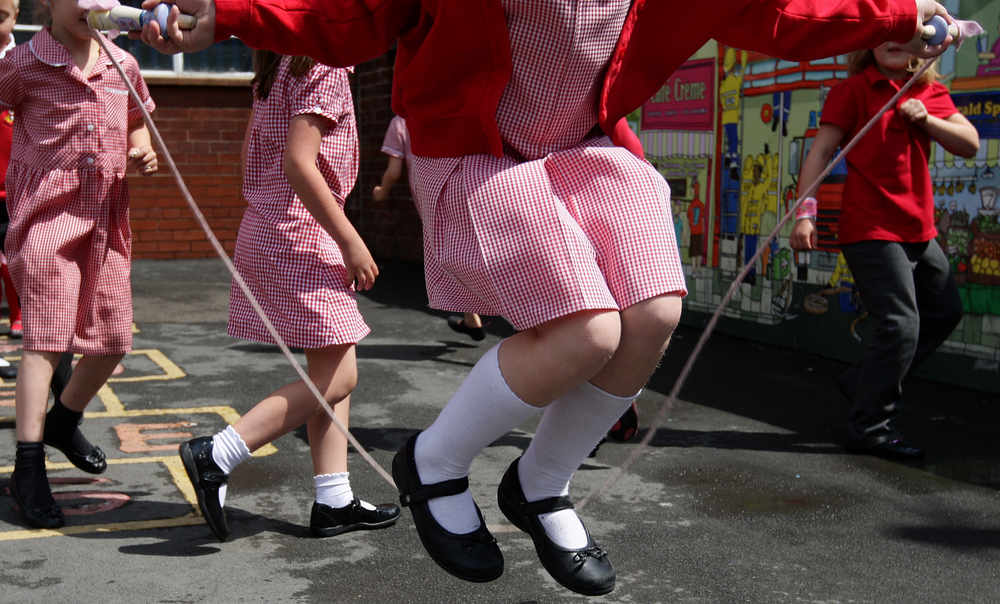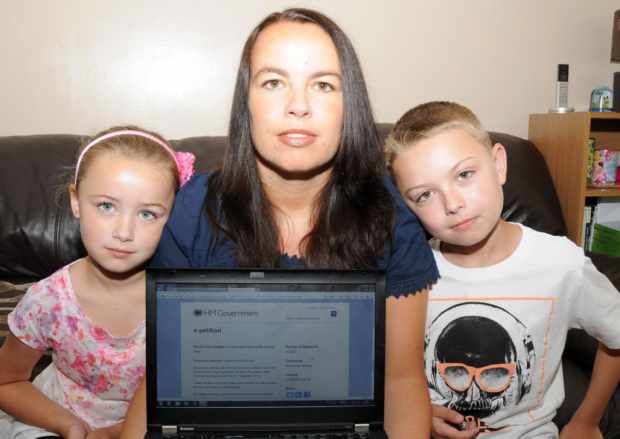- Many more Jersey parents are taking children out of school for holidays than in the UK
- Education Department has promised to take steps to combat the growing problem
- While unauthorised absences were down, overall attendence rates were up
- Should parents be allowed to take children on holiday during school? Take our poll below
JERSEY’S schools have a much higher rate of children being taken out of class to go on holiday than in England, a new report has found.
The internal report, which focuses on pupil attendance and absence for Islanders aged between four and 15 during the 2013/2014 academic year, shows that rates of permitted absence – particularly family holidays – are higher in Jersey’s schools when compared to rates seen in England. Of the Island’s overall 3.7 per cent rate of authorised absence, family holidays accounted for 0.8 per cent absence in primary schools and 0.3 per cent in secondary schools.
In England, however, the rates were 0.1 per cent for both categories of school.


Overall attendance rates were the highest they have been for at least five years, but unauthorised absence – non-attendance without permission – was slightly higher than the previous year.
Education director Justin Donovan welcomed the report, saying that the department would be looking at the levels of holidays that involved taking children out of school.
He said: ‘Overall this is positive news and another step towards having robust statistical data for the department. It is interesting that the percentage of authorised family holidays in Jersey is higher than the UK and this is something we need to take a closer look at.’
Average attendance rates were up overall, to 95 per cent, up from 94 per cent in the 2008/2009 academic year.
Illness in Jersey primary schools – another possible reason for an authorised absence – was at the same level as the UK. Secondary school illness, however, was slightly higher in the Island than across the Channel.
Unauthorised absences have remained consistently low among primary schools for the past seven years.

However, secondary schools recorded a rise in that category last year compared to 2011/2012 and 2012/2013 academic years.
The report said: ‘The rate of unauthorised absence in primary schools has remained flat over the last seven academic years at a round 0.2 to 0.3 per cent.
‘In comparison, the unauthorised absence rate for secondary school pupils has seen more volatility over the same period.
‘Since 2011/2012 the unauthorised absence rate has increased marginally, taking the unauthorised absence rate for secondary school pupils to around 1.1 per cent in the latest year.’

In 2013 nearly 30,000 people signed an online petition against the UK Education departments’ new school attendance rules.
From 1 September this year, parents in the UK have been forbidden from taking their children on holiday during term time unless there are ‘exceptional circumstances’.
If they do, they face a fine of £60 per parent, per child. A mother of two from Doncaster started the nationwide campaign against the plans.
Emma Whiting argued it would penalise hardworking families who simply can’t afford to pay the prices charged by some travel firms during school holidays.
In 2011, research by Santander revealed that family breaks during school holidays cost almost double the equivalent deals offered during term time, with the average price difference almost £800.
Following the introduction of the new law, the number of fines issued to parents for their children’s absence from school rose by around 70%, a BBC survey of local councils in England found.
Just under 64,000 fines were handed out between September and July 2014, compared to 37,650 in the previous academic year, the research found.
Of the 152 councils across England the BBC said 118 had responded to its survey.
Lancashire topped the list of council areas handing out fines, with 3,106 issued in the school year.
Other areas which saw big increases in the penalties issued included West Sussex and Doncaster, both of which more than doubled from year to year.
Schools minister Nick Gibb said attendance had improved since the ban was introduced. He said: ‘When the Government came to office, the number of children missing school regularly was far too high. As a result of the changes we have implemented, 130,000 fewer pupils are regularly missing lessons, which means 130,000 more pupils getting the chance of a good education.’
ISLANDERS want those in charge to deliver sensible solutions to everyday issues. They want politicians and civil servants to work together to make life better.
Today, Education released the results of a review of attendance levels in Island schools which found that authorised absence was higher than in the UK.
That will hardly come as a surprise to those who know how prices peak during school holidays, pushing the cost of a family getaway way beyond what many families can afford.
The question is what can be done about it. Education director Justin Donovan is committed to raising standards and ensuring that Jersey, which has a high percentage of children in fee-paying schools, outperforms the UK at GCSE and A-level.
And that has got to mean pupils spending more time in school, not less.
But the answer is not simply to stop parents taking their children on holiday. In a small, geographically isolated island like Jersey, it is essential that young people are able to experience different places and cultures.
They and their parents also need a break ‘off the rock’.
For years, there has been talk of changing the school year so that holidays are taken on different dates than in England. If that can be achieved, it could saves families a fortune, although the cost of actually getting out of the Island by boat or plane will remain higher during holiday periods if companies switch their peak-price periods.
There will also need to be some overlap with UK schools so that the many Island children from immigrant families can spend time in the holidays with brothers, sisters, cousins and friends from across the Channel.
Mr Donovan and Education Minister Rod Bryans say that they want to build an education system which best suits the needs of the Island and Islanders – and if that means dismantling what has been accepted practice for years then so be it.
They want to base policy on objective and firm foundations, not the whim of politicians and are collating and analysing a huge amount of data as a first step to identifying and solving problems.
A fresh, informed approach and a can-do attitude are very welcome in the public sector, especially when the results make life better.







